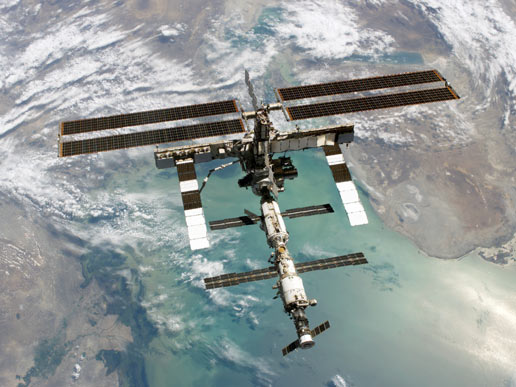FROM: U.S. STATE DEPARTMENT
U.S.-India Space Cooperation
Remarks
Geoffrey Pyatt
Principal Deputy Assistant Secretary, Bureau of South and Central Asian Affairs
U.S.-India Civil Space Joint Working Group
Washington, DC
March 21, 2013
Good morning everyone. It’s an enormous privilege to welcome Administrator Bolden, Ambassador Rao, the Indian delegation, and our colleagues from the Indian Embassy, NASA, NOAA, and the State Department here in Washington to this Joint Working Group.
The United States and India are leaders in earth observation. We’re excited to see how this working group can build on joint activities using U.S. and Indian earth observation satellites to better understand earth systems and provide information to improve economies and lives.
We also should seek to increase our commercial space cooperation and create opportunities for U.S. and Indian companies.
And our very capable space science communities have much to offer each other through collaboration. India’s first Indian Mars Orbiter Mission, slated for October 2013, is an exciting opportunity for U.S.-India collaboration.
Being here at this working group this morning is a particular pleasure for me, as I’ve been working for many years on helping make this sort of cooperation possible. Thanks to visionary, bipartisan U.S. and Indian leadership, we’ve recognized how much we have to offer each other and have made great strides in the past decade in bringing our scientific and technical communities together.
The hard work on both sides in transforming our interactions with each other has allowed successes such as including U.S. instruments on India’s Chandrayaan-1 lunar mission -- a path-finding step to show our two systems how to work together, as well as a fruitful scientific endeavor pointing out the promise of this cooperation. More recently, the removal of ISRO subordinate entities from the Entity List at the 2011 Civil Space Joint Working Group meeting and additional measures taken since have further expanded the possibilities for trade and cooperation in civil space.
In January, President Obama signed into law the National Defense Authorization Act, which includes satellite export reform measures expected to expedite trade in space technology.
U.S.-India science and technology builds on a relationship that is robust and vibrant. The U.S.-India Science and Technology Endowment Fund, established in 2009 and with an annual budget of $2 to $3 million, is a landmark in our belief to work together to promote commercialization of innovative technologies.
This collaboration on innovation across a wide range of disciplines is generating new jobs for our people and helping to address many of the globe’s big challenges.
Our space cooperation has become a signature aspect of this science, technology, and innovation cooperation, highlighting both the constancy of our mutual respect and appreciation for each others’ capabilities through the decades, as well as the vast potential – dare I say universal? -- opened up by the changes in our relationship.
I congratulate all of you – the experts and practitioners from both our countries – for your participation in building closer ties in space exploration, space science, earth observation, and launch and ensuring the safety and security of outer space activities. I know your efforts this week will further the cooperation that expands our collective knowledge, brings practical benefits to our citizens, and helps us plan for our future. I wish you all the best in this meeting of the Civil Space Joint Working Group.

No comments:
Post a Comment